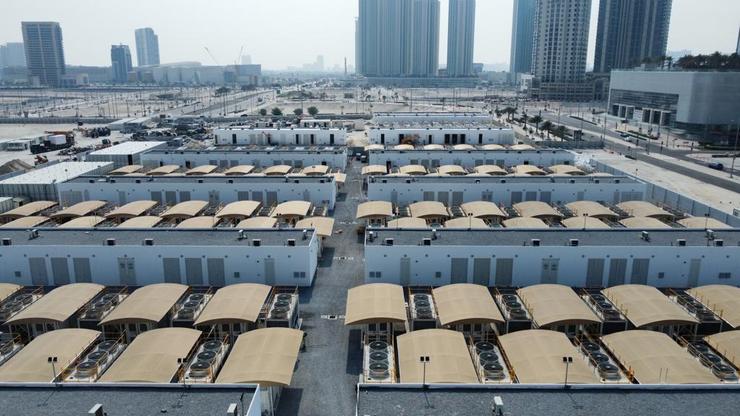The Scoop
Phoenix Group, a Bitcoin miner listed in Abu Dhabi, plans to double its global data center capacity to more than 1 gigawatt over the next two years to expand into artificial intelligence and is considering floating part of the business in the US, CEO Munaf Ali said in an interview.
The company, among the top 10 Bitcoin miners globally, has operations in Canada, Ethiopia, Oman, the UAE, and the US. Its business model centers on acquiring land and securing long-term access to power. Phoenix runs its rigs in 20-foot containers instead of warehouses, which Ali said allows for flexibility to switch between crypto mining and AI data center operations based on demand.
“AI de-risks crypto and crypto de-risks AI,” Ali said. “Bitcoin mining can be operational in six months,” while an AI data center can take years to build and lock in tenants.
While large-scale data center buildouts dominate headlines, Ali said there’s growing demand for smaller facilities because many companies must host their data and cloud operations domestically, due to local regulations. These businesses need far less capacity than hyperscalers. While building out a new site, Phoenix plans to mine crypto with the available power until AI tenants move in and hit capacity.
“We put the containers on trucks, load them on a ship, and move them to another location where we have excess power,” Ali said.
Know More
Phoenix plans to carve out its mining and data center operations and float the unit on a US exchange, with the Abu Dhabi parent company retaining majority ownership. Ali didn’t give a timeline, but said a dual listing would help access capital and benefit from the higher valuations for tech companies in the US.
Phoenix mined about 350 Bitcoins in the first quarter of this year and reported $31 million in revenue. While the company’s core focus is on mining and data center operations, it also has venture investments in the blockchain and digital assets space.
Step Back
Bitcoin mining companies are outliers on exchanges in Abu Dhabi and the region, which are dominated by banking, real estate, and energy firms. Ali’s path into crypto, like many in the industry, is unconventional.
He started his career as a trader in London before moving to Dubai with Citi in 2005, just as the property market was booming. There, he saw an opportunity: Many people were building wealth in the Gulf — or bringing their riches from other countries — but held passports that limited mobility or tied them to unfavorable tax regimes.
Ali began developing hotels in Caribbean countries like St. Kitts and Dominica, which offer citizenship to investors. Business was good, and he wasn’t paying attention to financial innovations, until a 21-year-old client with more than $200 million in the bank came seeking a passport. The client, whom Ali declined to name, introduced him to Bitcoin, gifting him his first coin, worth $458 at the time. Within six months, Ali said he left real estate to go all-in on crypto mining, operating rigs out of a warehouse district in Dubai.
The business grew as crypto boomed. Phoenix began selling mining equipment and hosting servers for customers. Access to affordable power has always been the main challenge, Ali said. Today, the company focuses on securing land with surplus electricity — renewable, solar, wind, nuclear, grid or off-grid — and reliable internet connectivity. In many ways, it’s a real estate play.
While many crypto executives are eager to hype up the latest token or trend, Ali is focused on the picks and shovels: the infrastructure. “We are long electricity, which means we are long crypto, and that also means we are long AI,” he said.


